Studies
show that the majority corporate “eLearning” programs are ineffective
and limited in use, other than mandatory compliance training. Today’s
modern learner has little use for linear courses that are nothing more
than animated slides designed for consumption in a Learning Management
System. LMS training
was primarily designed for a desktop, not mobile, experience. Many new
approaches are being explored in order to address this serious problem.
One of the more popular discussions is content curation vs. content
creation, as you can see here Curation for Modern Blended Learning .
Content curation is the act of discovering, gathering, and presenting digital content that surrounds a specific topic. The curator is not creating new content, but rather searching and assembling existing content, organizing and sharing it. As far as training goes, there are underlying questions as to whether or not this approach results in learning that truly impacts job performance. But given the speed of business, the availability of content both on the Internet and internal to an organization, and the changing habits of the modern learner, curation is certainly something everyone has to evaluate.

Whether one considers curation or new
content creation, the first thing to understand is what is the goal and
who is going to “do it.” If you are a fast-growing company, hiring many
new employees in a short period of time or continuously on a regular
basis for the foreseeable future, you need to decide who is going to be
responsible for “getting the content into the hands of the people who
need it.” And making sure that it is aligned with your goals for the
training.
For some, curation means that the
“consumer” (the learner, e.g. an employee) can find relevant content
both inside and outside your company and create a mashup or playlist,
just like they would their music. Then share this with other learners.
But would this really work for training a new hire on your strategy,
products or processes in a fast-growing company? The jury is still out
on this and there is fear that allowing learners to curate their own
content may not result in the best learning experience. But a one size
fits all approach to employee training clearly doesn’t work either…
You can’t avoid the curation vs.
creation debate. There is a fundamental transition in the corporate
training world that is being driven by the need to provide newer and
fresher content faster, with an outstanding consumer experience. You now
need your Subject Matter Experts (SME) to be actively part of this
strategy. They can tell you what content they have seen that can make a
difference. You need to make it easy for SMEs to collaborate and curate
content for you. That is the best way to eventually get everyone in the
organization to be part of the content process.
Many industry pundits suggest moving away from content creation to pure curation. It doesn’t have to be all or nothing. You can easily employ a hybrid strategy that allows you to open up the “curation” process to your entire organization, with designated people who are responsible for the final assembly. A few tips can be found here Content Curation 101 .
You don’t need complex, specialized
eLearning tools anymore to do this. You need simple tools that every
subject matter expert can use. You need to enable collaboration to allow
teams to find and share the right content. You need to make it easy for
someone to take a quick video, upload it for use with other digital
assets and then have someone package it as a course (or whatever you
want to call it, such as a playlist or collection) once it has been
review to ensure that it is aligned with your goals.
The world is moving to much quicker cycles for content, both initial creation, and ongoing updates. Content curation systems and technology are already entering the market. And with a little planning, you can start on a path to integrating this into your training programs as appropriate. Building training doesn’t have to be expensive, complicated and hard to use. You just need to get the right online training software.




